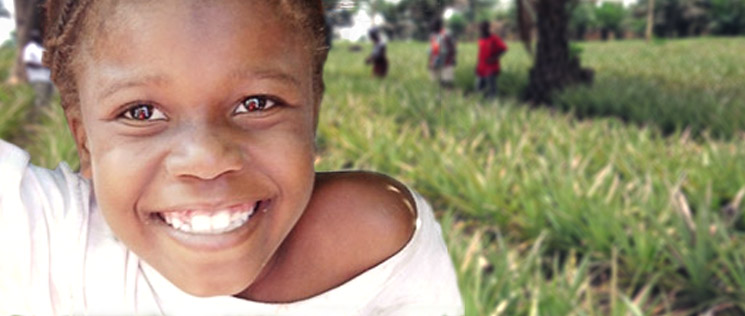
Village Partnerships: Rogbere Village

Partner: Trinity Bible Church
Status: Active
Location: Sierra Leone
Village History
Rogbere Village is a rural village located in the Mayatha section, Kholife Rowala chiefdom, in the Tonkolili District of Sierra Leone. It is several miles from Makeni, and Limba and Temne are the common spoken languages.
Members of Rogbere are both Christian and Muslim, but live amicably and respect each other. They participate in collaborative community development and believe it is the only tool that can move them out of poverty.
Completed Activities & Impact
Trinity Bible Church began a partnership with the people of Rogbere Village, Sierra Leone in the summer of 2014. Facilitated by World Hope International, Trinity Bible Church’s generosity has started Rogbere on a journey to promote community leadership development, hygiene training and education livelihood development, improved farming techniques, and spiritual growth in this rural village.
Agriculture
In 2015, the partnership between Trinity Bible Church and Rogbere began with a focus on forming agriculture cooperative in the community and planting pineapple fields, papayas and installing greenhouses. The cooperative is made up of members from the community who agreed to attend various trainings in agriculture and commit to provide manual labor.
Peanut seeds were exclusively given to women and rice to men to grow in 2016. 40 women each received two bushels of peanut seed and 30 men were each given two bushels of rice seed on loan. Farmers paid back to the community seed bank upon harvest for the next selected farmers to these same seed loans.
Water Wells and Sanitation
This community has no safe water or proper toilet facilities available. In 2016, preparation for a drilled well was underway to provide access to clean drinking water.
Drying Floor Construction
It is common for villages to go with very little food for two months each year. These are known as “the hungry months”. This occurs when a family’s food supply of staple dried foods runs out or spoils. The main foods are rice and peanuts and drying is one of the few ways that people can preserve food between harvests.
Concrete drying floors were constructed in June of 2016 and were slanted for water runoff. These drying floors have provided an efficient and safe way to dry crops, which is the primary method of food preservation in rural Sierra Leone.
Mosquito Nets
In 2016, 200 insecticide-treated nets were distributed for pregnant women, lactating mothers and elderly people in Rogbere. The nets were used to kill or repel mosquitoes carrying malaria, one of the leading causes of death in Africa.
Village Partnership works to not only improve the economic status of the community but also helps to build a healthy society.